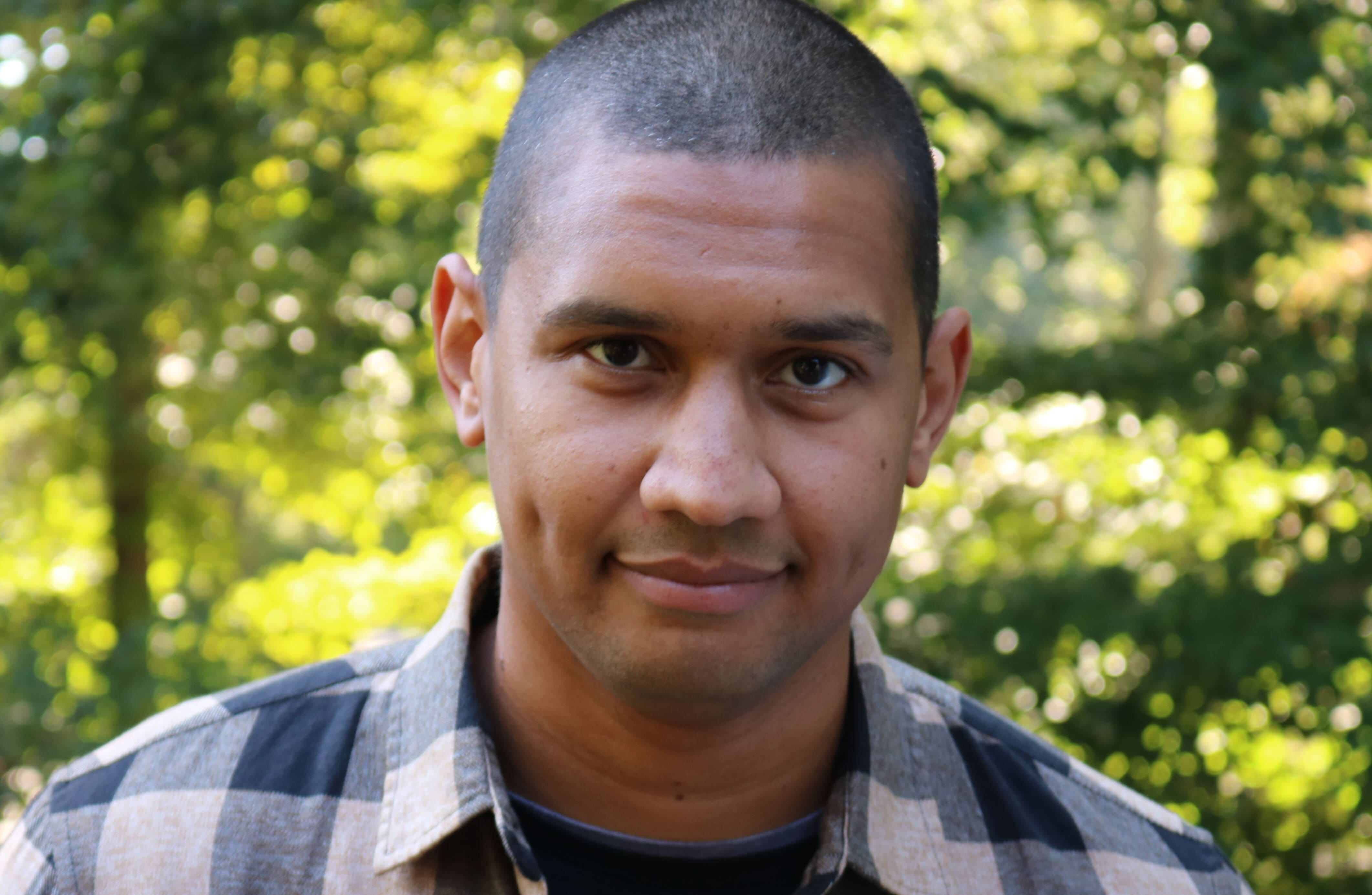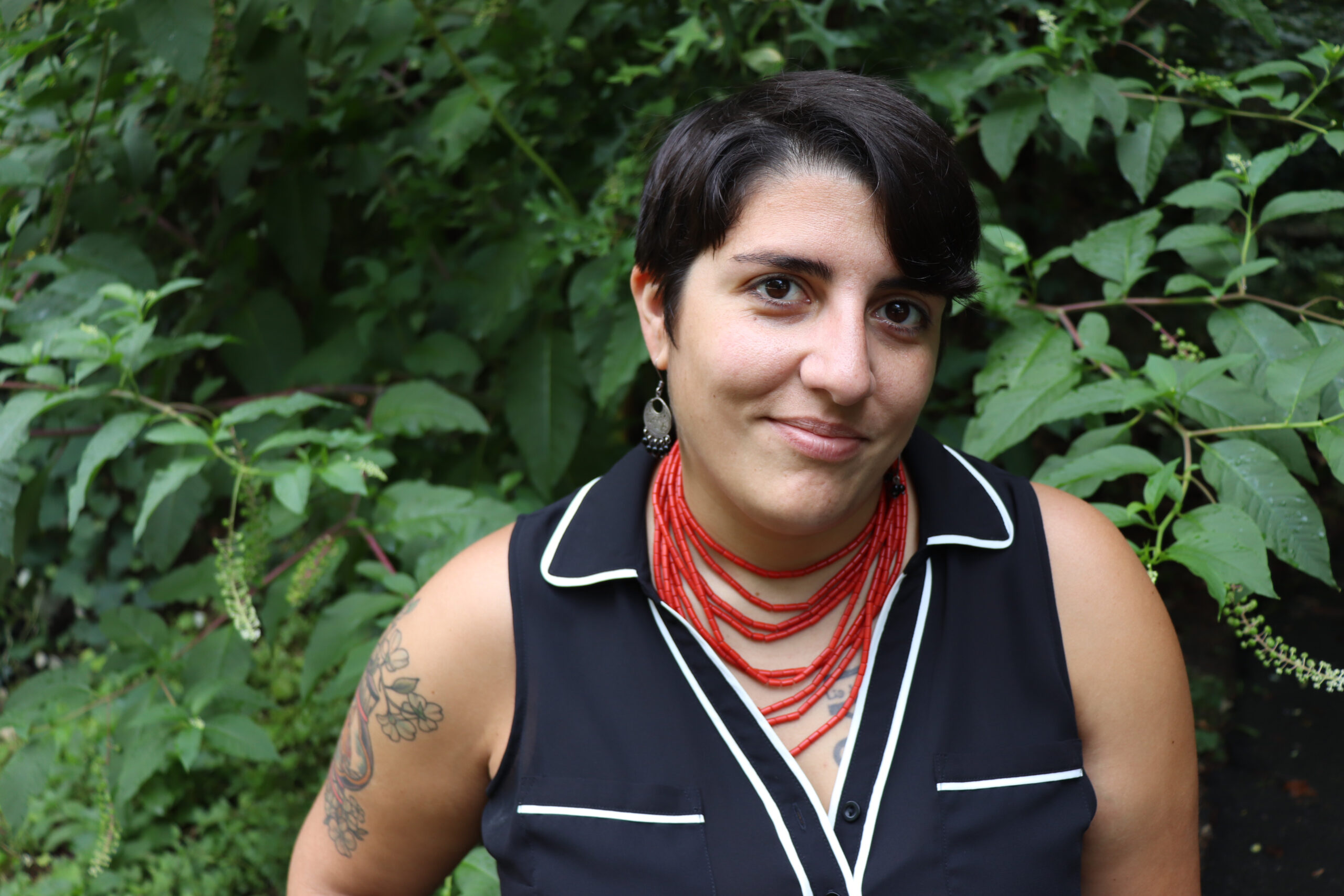[Editors’ note: This miCRo will be our last until August! Enjoy a summery July in the meantime.]
Managing Editor Lisa Ampleman: In this essay, part of a series-in-progress on the alphabet, William Woolfitt tells us about a letter that’s disappeared from modern English. As he helps us hear the sound it represented, he reminds us of other things that have disappeared over time—bears, trees, plants—both in England, birthplace of the language, and in West Virginia, whose landscape has been shaped by a loss brought about by violence.
Ð, the Letter Edh
Among those that disappeared from the alphabet, a letter ghost, it was named edh, or eth, or ðæt, it represented two different phonemes, the last units of sound in words like earth and breathe and tooth, scythe and heath.
If you wanted to write bears belong on the heath, it would look like this: bera sceal on hæðe. Scribes copied this maxim in the Cotton Manuscript in the eleventh century. Were the scribes bear-haunted, tree-haunted? By then, the Eurasian brown bear was extinct in England; the Domesday survey of 1086 suggests that 85% of the wildwood—England’s first forests—had been felled for fuel, thatching spars, woven hurdles, wattle-work, timber-framed buildings, carts, bridges, and ships. Much of the cleared ground had become heaths—large tracts of so-called wasteland with soil that’s meager, or sandy, or acidic.
For the fuel they needed for heating and cooking, people gathered whatever scrubby plants grew on the heath: bracken, gorse, and broom, and heather (hedder), cut with the sods on which it grows. In 1850 Eliza Cook observed the hardy and simple life of the mountaineers who burned turves of heather to warm their heather-straw-earth cabins. On Cattell Moor, the poorest sort loaded their backs with the gorse and bracken they would burn to warmtheirhouses; the brickmakers at Blickling Hall fed gorse and broom to their kilns to bake a million glazed bricks.
It’s an old story: we slash everything, we set it on fire, then we search what remains and what comes back, then we burn that too.
***
As the ð ghosts the modern English alphabet, as the small-leaved lime, oak, hazel, ash, and elm ghost the English heaths, so red spruce ghosts the heath barrens at Dolly Sods Wilderness Area in West Virginia.
And not just red spruce. Signs in the parking lot warn visitors, Highly explosive live bombs from WWII training can still be found in the area. Do not touch! I followed a jeep trail through second-growth hemlocks concealing hundreds of acres that had been clear-cut by pulp and lumber companies. The red spruce stumps and slash and drifts of needles left by the loggers caught on fire, and then the soil—a rich humus layer, more than 6 feet deep—caught on fire, and everything was burnt to bare rock, leaving the limestone and sandstone exposed.
In that part of West Virginia, some fires burned continuously—sometimes for years on end, from spring until the first snows.
Soldiers practicing for the Apennines in Italy made the scourged land at Dolly Sods their artillery range, studded Blackbird Knob with mortar shells.
I hiked across the huckleberry plains, the rocky places where chokeberry grows, and poverty grass, oat grass, fly-back.
***
To make the ð sound: draw your téð near together, put your tongue into the opening, send your breð through.
William Woolfitt’s poems, short stories, and essays have appeared in AGNI, Blackbird, Tin House, The Threepenny Review, The Cincinnati Review, and elsewhere. He is the author of three poetry collections, including Spring Up Everlasting (Mercer University Press, 2020).
For more miCRo pieces, CLICK HERE












